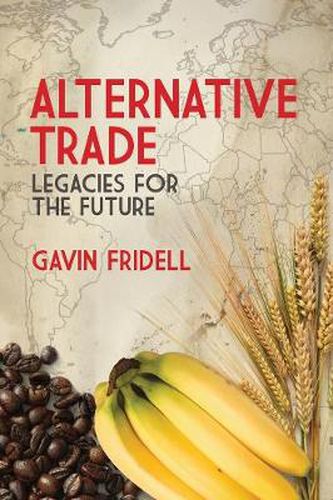Readings Newsletter
Become a Readings Member to make your shopping experience even easier.
Sign in or sign up for free!
You’re not far away from qualifying for FREE standard shipping within Australia
You’ve qualified for FREE standard shipping within Australia
The cart is loading…






Free trade does not make a significantly positive contribution to a society’s well being, nor does real free trade exist. In Alternative Trade, Gavin Fridell confronts these assumptions through a passionate and rigorous appraisal of alternative trade and its imperfect legacy. Examining the history of alternative trade models - the International Coffee Agreement, the Canadian Wheat Board and the European-Caribbean banana regime - Fridell exposes the unbridgeable gap between free trade proclamations and the lack of actually existing free trade, arguing that the alternative trade models are much more socially efficient than what followed in their wake. Additionally, Fridell places politics, history, social change, class power and violence front-and-centre in his analysis and examines alternative trade within a broader social and historical context to uncover lessons for a more cooperative, socially just world order.
$9.00 standard shipping within Australia
FREE standard shipping within Australia for orders over $100.00
Express & International shipping calculated at checkout
Free trade does not make a significantly positive contribution to a society’s well being, nor does real free trade exist. In Alternative Trade, Gavin Fridell confronts these assumptions through a passionate and rigorous appraisal of alternative trade and its imperfect legacy. Examining the history of alternative trade models - the International Coffee Agreement, the Canadian Wheat Board and the European-Caribbean banana regime - Fridell exposes the unbridgeable gap between free trade proclamations and the lack of actually existing free trade, arguing that the alternative trade models are much more socially efficient than what followed in their wake. Additionally, Fridell places politics, history, social change, class power and violence front-and-centre in his analysis and examines alternative trade within a broader social and historical context to uncover lessons for a more cooperative, socially just world order.